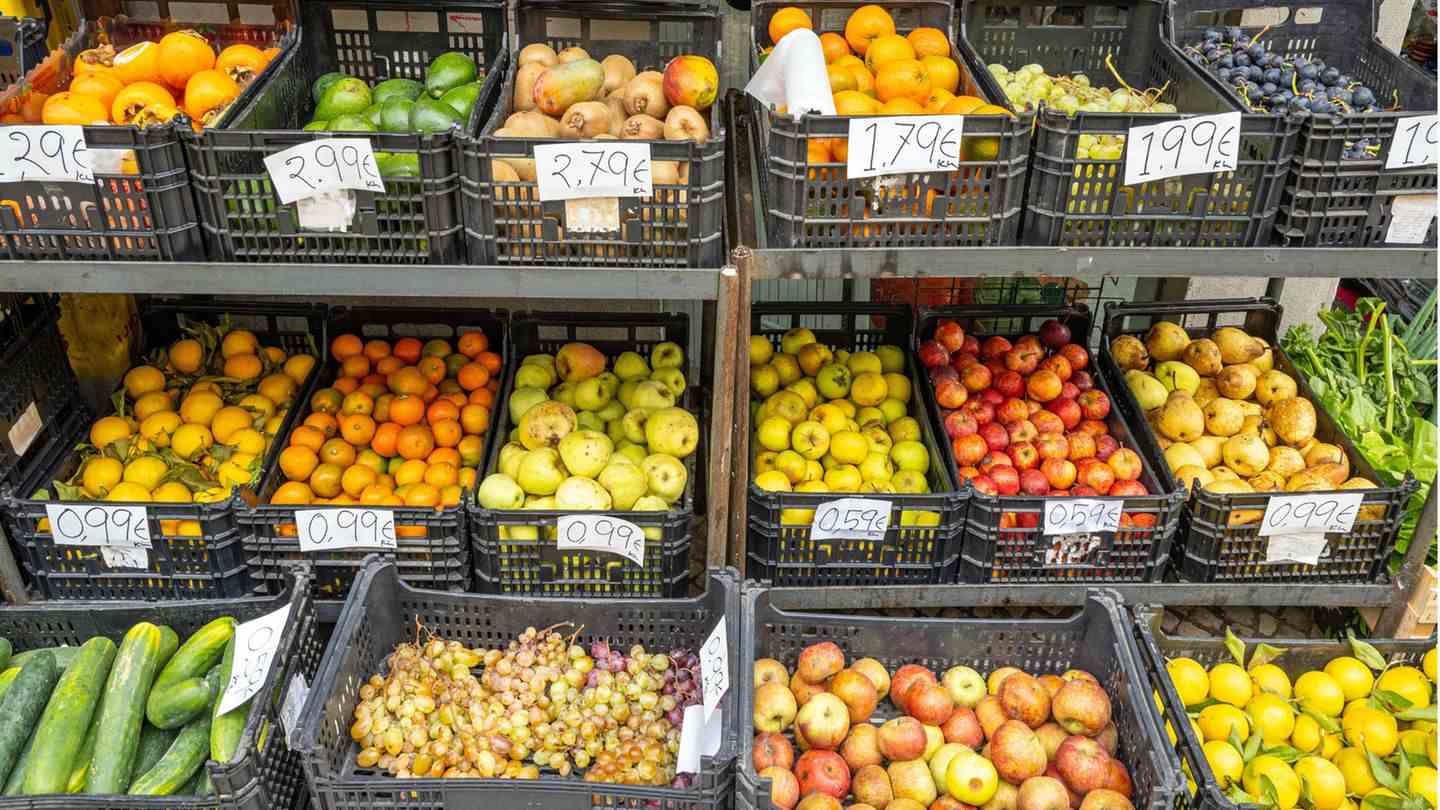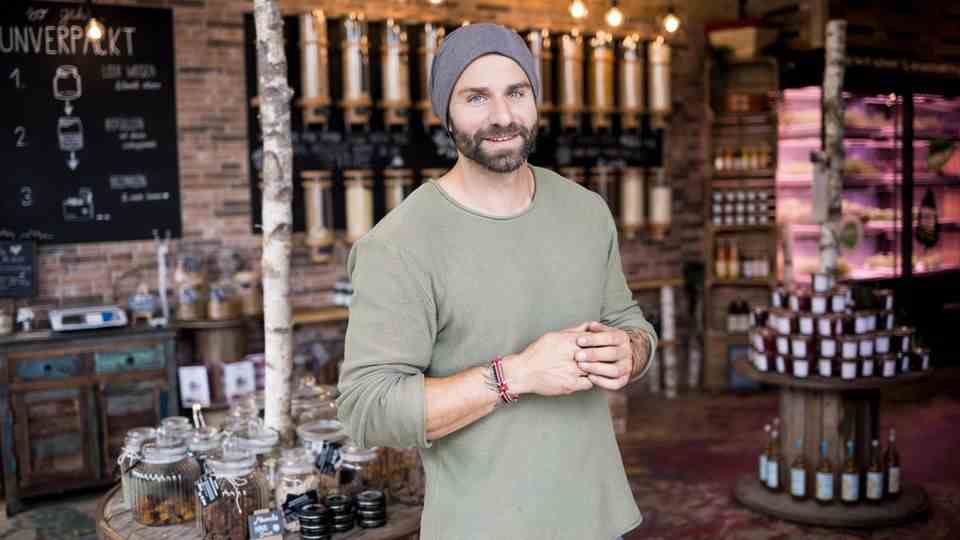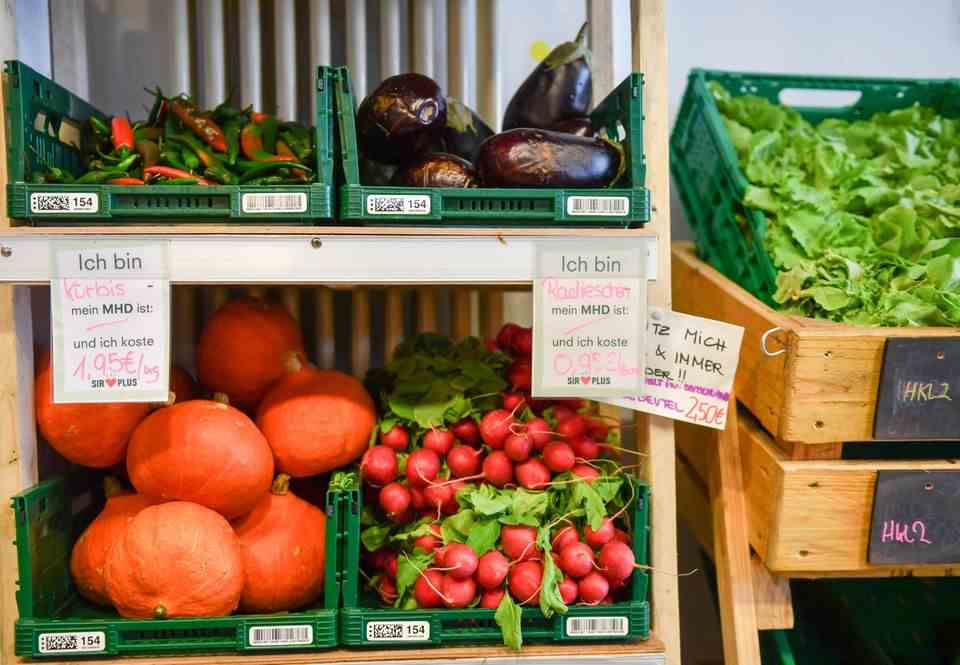Higher prices
Organic doldrums: Consumers are increasingly turning their backs on organic products
The prices of fruit and vegetables have also risen sharply recently.
© elxeneize / Picture Alliance
Organic products are good for your conscience, but bad for your wallet. Especially now that food and energy prices are going through the roof, the euro isn’t as loose. Retailers are experiencing an organic blues.
When heating, refueling and electricity become more expensive, consumers tighten their belts when shopping. Many Germans save on high-priced organic food because of the high inflation. Organic shops and organic supermarkets sold significantly fewer goods in the first three months of this year than in the same period last year, as the Bundesverband Naturkost Naturwaren (BNN) reported to the German Press Agency. Market researchers see a drop in organic branded products in particular. The organic own brands of the supermarkets and discounters, on the other hand, continue to do well.
According to BNN Managing Director Kathrin Jäckel, consumers are paying more attention to the price. They are under the influence of inflation and the Ukraine war as well as rising costs for energy, mobility and everyday necessities. According to BNN, organic shops and organic supermarkets made an average of almost 10 percent lower daily sales in January and more than 18 percent in March. The trend in organic wholesale is similar. Figures for the quantity sold were not available.
The years of growth in the mostly more expensive organic goods had accelerated during the Corona crisis because people ate more at home and less in canteens and restaurants. Now inflation may have reversed the trend. Trade researchers see “consumer behavior on the back burner”. Many find it easier to save on groceries than on fuel for the daily commute to work.
Organic blues or a matter of interpretation?
Jäckel warned that if less and less organic was bought, the government’s goal of increasing the organic share to 30 percent by 2030 would be in jeopardy. Organic currently accounts for about 10 percent of the cultivated area. “But the climate crisis is not taking a break,” said Jäckel. She called for VAT to be abolished for organic food and natural products, especially fruit and vegetables. The tax on milk and meat products should be lower than on conventionally produced products.
However, in a recent study, the market research company GfK put the organic sales losses into perspective. Although business had declined in the first quarter, the decline was less than for consumer goods as a whole. “Therefore it can be said that organic is still relatively trendy.” When buying organic products, customers are increasingly turning to retail chains’ own brands and ignoring the more expensive products from brand manufacturers. According to GfK, retailers’ own organic brands achieved a sales increase of a good nine percent in the first three months. The organic brand manufacturers lost eleven percent.
Despite the financial pressure, people didn’t want to completely put their social and ecological beliefs on the back burner when shopping. They were therefore looking for cheaper alternatives that “definitely meet the minimum standards of their socio-ecological requirements,” explained GfK retail expert Robert Kecskes. A spokesman for the retail chain Rewe said that the general reluctance to buy “does not ignore organic”. But the trend towards organic is still there. Germany’s largest food retailer Edeka sees itself bucking the trend in organic growth.
While organic is struggling despite the long-term trend towards more conscious eating, customers are still willing to spend in another area: According to GfK, vegan products from meat and cheese substitutes to vegan confectionery and milk substitutes also showed sales growth of between 3 and 13 percent in the first quarter on.
The market niche for fair trade products also continues to grow. There are several seals for products whose suppliers value fair wages and better working conditions. In 2021, consumers spent a record sum of around 2.1 billion euros on goods with the widespread “Fairtrade” seal alone – an increase of 9 percent, as the Fairtrade Germany association announced in Berlin. Fairtrade CEO Dieter Overath has no indication of an expected drop in sales. “We’re not too worried about getting under the prize wheels,” he said. “Fortunately, we have customers who buy out of conviction.”



